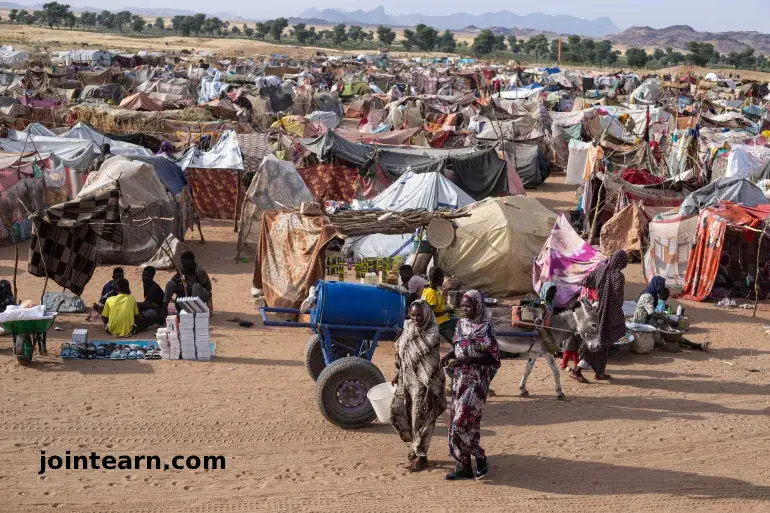
The Rapid Support Forces (RSF) in Sudan has announced its acceptance of a humanitarian ceasefire proposed by the United States and the US-led “quad” mediation group, which includes Saudi Arabia, Egypt, and the United Arab Emirates. The proposal aims to halt more than two years of fighting with the Sudanese Armed Forces (SAF) and address the catastrophic humanitarian impact of the ongoing conflict.
In a statement on Thursday, the RSF described the truce as a measure “to address the catastrophic humanitarian consequences of the war and to enhance the protection of civilians.” There was no immediate comment from Sudan’s military regarding the agreement.
Details of the Ceasefire Proposal
US senior adviser for Arab and African affairs, Massad Boulos, confirmed earlier this week that both warring parties had “agreed in principle” to a truce. He stated, “We have not recorded any initial objection from either side. We are now focusing on the fine details.”
Al Jazeera correspondent Hiba Morgan in Khartoum reported that the ceasefire plan would begin with a three-month humanitarian truce, potentially laying the groundwork for a lasting political solution, including the establishment of a new civilian government. The RSF stated that it is “eager to find some kind of end to this two-year conflict.”
SAF’s Position and Ongoing Tensions
Despite the RSF’s acceptance, SAF has signaled reluctance, repeatedly asserting its intent to continue fighting. Army officials question whether RSF members can be reintegrated into Sudanese society and have imposed conditions for any truce, including RSF withdrawal from occupied cities.
Army chief Abdel Fattah al-Burhan declared in a televised address that his forces are “striving for the defeat of the enemy” and vowed retaliation for attacks on civilians and soldiers. SAF has previously expressed opposition to the UAE’s involvement in mediation talks.
Humanitarian Crisis in Darfur
The RSF’s capture of el-Fasher in North Darfur on October 26, 2025, after an 18-month siege, has intensified the humanitarian crisis. The RSF now controls vast portions of western Darfur and parts of southern Sudan, while SAF maintains control over northern, eastern, and central regions along the Nile and Red Sea.
The United Nations reports that over 70,000 civilians have fled el-Fasher and surrounding areas since the RSF takeover. Witnesses and human rights organizations have documented summary executions, sexual violence, and mass killings. The World Health Organization reported the death of over 460 patients and medical staff at a former children’s hospital during the city’s capture.
Mass Graves and Satellite Evidence
A recent Yale University Humanitarian Research Lab report detected activity in el-Fasher consistent with mass graves. Satellite imagery revealed trenches and disturbances near key locations, including a mosque, the former children’s hospital, and Al-Saudi Hospital, suggesting the disposal or relocation of bodies in these areas.
Background of the Sudan Conflict
The Sudan war, which began in April 2023, has seen intense clashes between the SAF and the RSF, led by Mohammed Hamdan Daglo (Hemedti), former deputy of al-Burhan. Both sides have been accused of war crimes, including extrajudicial killings, attacks on civilians, torture, and sexual violence, as detailed in a September UN Human Rights Council report.
Conclusion
The RSF’s acceptance of the US-led ceasefire proposal marks a significant, though tentative, step toward addressing the humanitarian disaster in Sudan. However, the SAF’s conditional stance and the ongoing violence underscore the fragility of peace efforts. Humanitarian access, protection of civilians, and verification mechanisms remain crucial to prevent further suffering as negotiations continue.
Key Takeaways:
- RSF accepts US-led “quad” ceasefire proposal in Sudan.
- Three-month humanitarian truce proposed to protect civilians.
- SAF has yet to agree, imposing conditions including RSF withdrawal.
- Over 70,000 displaced and mass graves detected in el-Fasher.
- War crimes allegations and sexual violence reported against both sides.


Leave a Reply